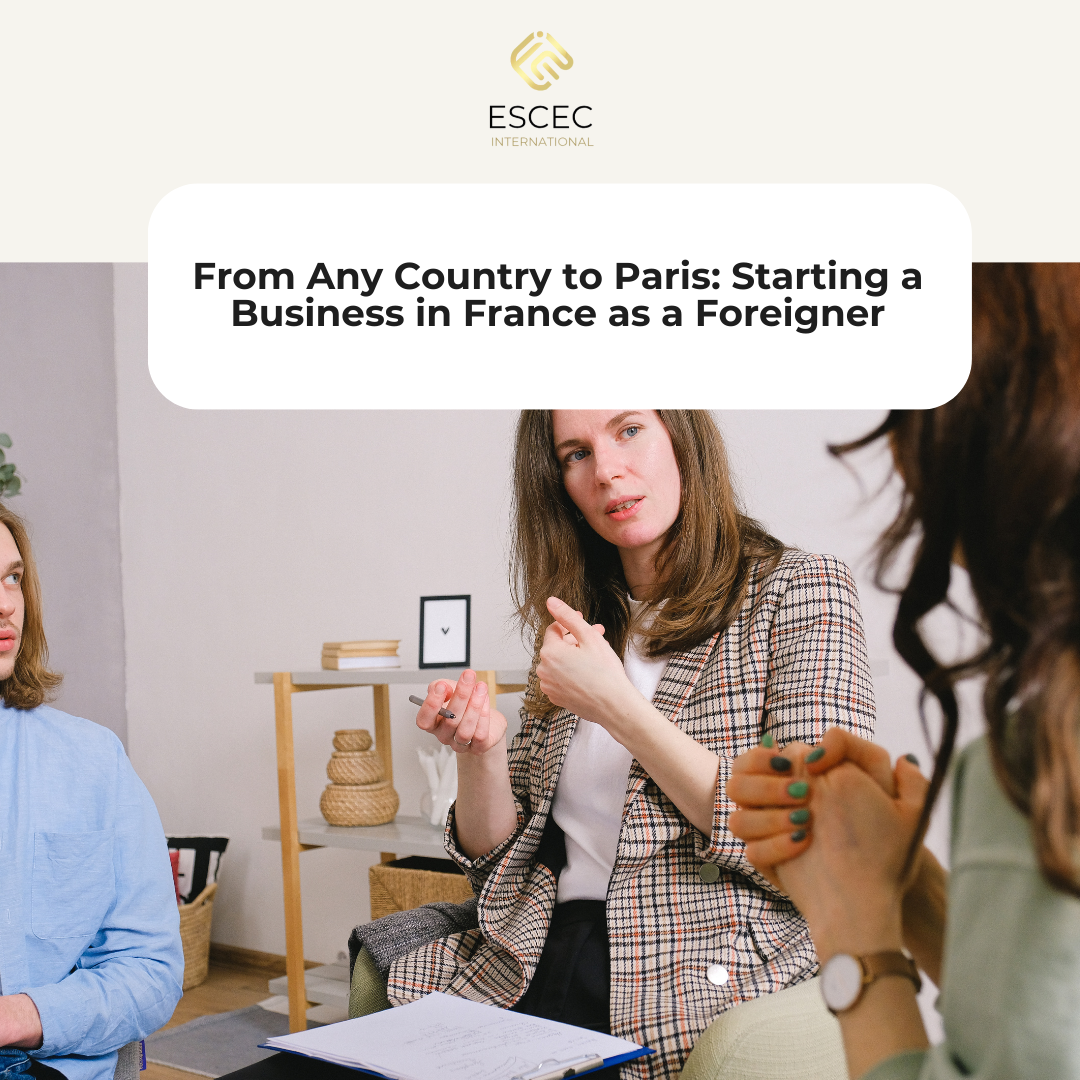From Any Country to Paris: Starting a Business in France as a Foreigner
Paris is a city that seems tailor-made for travelers. Packed with landmarks, undeniably romantic, and rich in culture, it never fails to enchant visitors. Whether you are stepping onto its cobblestone streets for the first time or returning to rediscover its timeless charm, tours to Paris offer an ideal way to experience the city’s magic.
From a scenic Seine River cruise past UNESCO-listed banks to breathtaking views atop the Eiffel Tower, each tour unlocks a different facet of Paris. Visitors can explore world-class museums like the Louvre, wander through artistic Montmartre, or savor wine and pastries in hidden cafés known only to locals. Day trips to Versailles, Normandy, or the Loire Valley expand the journey beyond the city limits, ensuring that Paris always has more to reveal.
Spotlight on April in Paris Tours
Among the many operators offering tours to Paris, one company stands out for its personal touch: April in Paris Tours. Founded by April Pett, a Canadian who fell in love with Paris at just 17, the company specializes in private, customizable tours that allow travelers to see both the iconic and hidden sides of the city.
From gourmet food walks to exclusive museum visits, April in Paris Tours offers experiences tailored to each visitor’s passions. April’s story is more than just a travel tale—it is also an inspiring example of how foreigners can successfully start and run a business in France.
For a closer look at her journey, visit our client spotlight on April in Paris Tours.
The Challenges of Starting a Business in France as a Foreigner
Building a business in France, especially as a foreigner, is a rewarding but complex process. Entrepreneurs must navigate a range of requirements, including:
-
Residency and visas: Non-EU citizens require the right visa or residency permit to start a business legally.
-
Choosing a business structure: Different legal forms offer varying levels of protection, tax obligations, and flexibility.
-
Taxation: Business owners must comply with French VAT, corporate tax or income tax, and social contributions.
-
Administration and compliance: From registration with the Chamber of Commerce to ongoing accounting, French bureaucracy can be daunting.
April’s success with April in Paris Tours demonstrates that while challenges exist, the dream of building a business in France is achievable with the right guidance.
Business Structures Available to Foreign Entrepreneurs
When starting a company in France, choosing the right legal structure is essential. Some common options include:
-
Micro-entreprise: Ideal for solo entrepreneurs starting small, with simplified accounting and lower social charges.
-
Entreprise Individuelle (EI): A straightforward option where the business is not legally separate from the owner.
-
Société à Responsabilité Limitée (SARL): A limited liability company often chosen by small to medium businesses.
-
Société par Actions Simplifiée (SAS): A flexible structure popular with startups and foreign entrepreneurs seeking investors.
Each option has tax and legal implications. For instance, a micro-entreprise may be attractive for a tour guide starting out, but as the business grows—like April in Paris Tours—a more robust structure such as SAS might be more suitable.
Steps to Start a Business in France as a Foreigner
Foreigners who wish to follow in April’s footsteps should consider these steps:
-
Secure the right visa or residency permit for entrepreneurial activity.
-
Choose a legal structure that aligns with your business goals and tax strategy.
-
Register the business with the appropriate authorities, such as the Centre de Formalités des Entreprises (CFE).
-
Set up accounting and tax compliance, including VAT registration if applicable.
-
Understand social contributions, which can be a significant part of business costs in France.
-
Open a French business bank account to manage finances professionally.
-
Work with an advisor, especially if you are unfamiliar with French administrative processes.
Taxes and Social Charges for Foreign Entrepreneurs
One of the most complex aspects of doing business in France is taxation. Depending on the structure chosen, entrepreneurs may face:
-
Income tax or corporate tax (based on the legal form).
-
VAT (Value Added Tax) on sales, including tourism-related services like guided tours.
-
Social security contributions, which fund health care, pensions, and family benefits.
-
Local business taxes, depending on location and activity.
For tour operators, VAT can be a crucial consideration, as rates may differ depending on the type of service offered (transport, cultural experiences, food services, etc.).
How ESCEC International Supports Foreign Founders
Launching a company in France can be overwhelming, but with expert support, it becomes a smooth process. ESCEC International specializes in helping foreign entrepreneurs establish themselves in France, providing services such as:
-
Guidance on choosing the right legal structure.
-
Full support for tax registration and compliance.
-
Assistance with payroll and social contributions.
-
Ongoing accounting and advisory services.
Our experience working with international founders, including inspiring cases like April in Paris Tours, shows that passion combined with professional guidance leads to sustainable success.
Conclusion: Turning a Dream into Reality
Paris may dazzle visitors with its beauty and romance, but for those willing to take the leap, it also offers opportunities to build a thriving business. April in Paris Tours illustrates how determination and vision can transform a passion for travel into a successful company.
For foreign entrepreneurs inspired to start their own journey, understanding French business structures, taxes, and administrative requirements is essential. With expert advisors like ESCEC International by your side, turning the dream of starting a business in France into reality is entirely possible.


